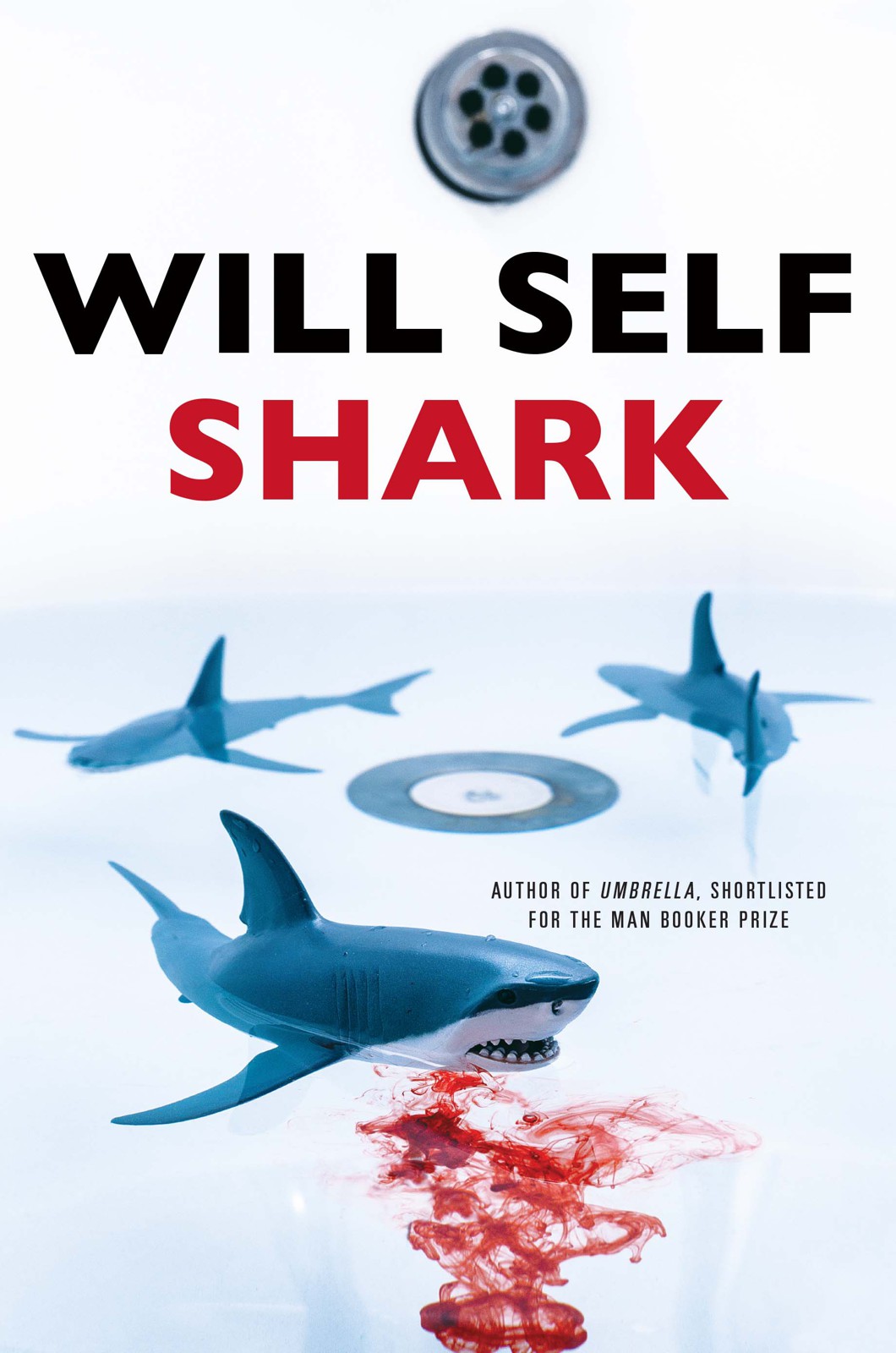
Shark
- اطلاعات
- نقد و بررسی
- دیدگاه کاربران
نقد و بررسی

September 1, 2014
After declaring the novel dead in May in his Guardian article “The Novel Is Dead (This Time It’s For Real),” Self returns with a new novel, and it is a maddening, uncompromising, serious, self-indulgent, and beautiful work. The second book in a planned trilogy, following Umbrella (which was shortlisted for the Man Booker), the novel reacquaints us with the unconventional psychiatrist Zack Busner. Busner is the proprietor of the Concept House, a mental health residence in which residents are given free rein. In an unbroken wall of text (no chapters or paragraph breaks), Self describes the many characters of the Concept House, including Lt. Claude Evenrude, who is scarred by what he did over Hiroshima as the target spotter for the Enola Gay, and Michael Lincoln, who watched men die as he floated in the shark-filled Pacific waters after the sinking of the USS Indianapolis. Their narratives, along with others, converge in a labyrinth of pyschedelic high modern voices (“Michael can see the drinkers’ beery guffaws... plain as iron filings round a vulcanite rod”), which, while ceaselessly musical and electric, often feels claustrophobic and disorienting. Bound to exasperate as often as it thrills, Self’s novel is a worthy follow-up, and comes as close to capturing the frightening bad trip of modern life as any book in recent memory. Agent: Andrew Wylie, Wylie Agency.

October 15, 2014
A hallucinatory, maddening, difficult novel by the shape-shifting Self (Umbrella, 2013, etc.), who dons his best Pynchon-esque finery.It's not a screaming that comes across the sky, not exactly, but instead a chunking guitar that herald's Self's opening: "owowwow-owww! the clawed chord howls in the hallway and tears up the stairs." It's the tail end of the 1960s, the day four kids are being shot down in Ohio, and over in tony London, a psychiatrist, for reasons that are not entirely clear, decides to test the therapeutic possibilities of lysergic acid on his own bad self. Time slips away, and so do the niceties of syntax, until some hundreds of pages later he begins to latch hold of his trip: "Lost in the curdled depths of the Labrador's mild-brown eyes, Zack isn't shocked by this hallucination, instead rather admires the dog's American accent." But more is afoot than just a lava-lamp swirl: During the proceedings, truths are unfolding about the century past in the jagged confessions of two haunted residents, one a survivor of the shark-doomed Indianapolis, which before sinking had carried the atomic bomb across the Pacific to the waiting Enola Gay, the other a witness to the obliteration of Hiroshima. The clash of "disabled ex-servicemen" and "bloody hippies" is obvious, as is the presence, perhaps real and perhaps imagined, of a malevolent German ("[v]ery gutt patientz, the Kraut soothes, ve-ery nize patientz"), but the whole enterprise collapses in a meltdown of ellipses and em dashes until we're not quite sure where we are in the proceedings. Self's presentation is too clever by half, and though undeniably artful, it's a chore for readers: The book seems destined for cult status, to be sure, but it's hard to imagine even the most die-hard of Gravity's Rainbow fans warming up to this one. Puzzling and ponderous but never predictable-very much in line with Self's trajectory thus far, in other words.
COPYRIGHT(2014) Kirkus Reviews, ALL RIGHTS RESERVED.

November 1, 2014
Self's verbose, sometimes opaque narrative fiction (e.g., Great Apes; Umbrella) often leaves the uninitiated reader dazed, and this latest work is no exception. Through shards of paragraphs, staccato-styled sentences, and multiple characters, Self examines the enduring psychological scars of war and humanity's collective fascination with violence. The novel centers on an acid trip undertaken by Dr. Zack Busner, a psychiatrist working in an experimental community whom readers first met in the Man Booker short-listed Umbrella. Unbeknownst to Busner, two of his patients witnessed the destruction of war from two distinct vantage points, one aboard the Enola Gay and the other barely afloat in shark-infested waters after the sinking of the USS Indianapolis. Reflecting on the LSD trip during a viewing of Jaws, Busner muses on the psychopathology of violence from the perspective of both aggressor and victim. VERDICT Not unlike the rest of his work, Self's new novel is a sprawling puzzle of fiction that will repel the average reader while rewarding fans of the experimental form. Though not necessary, reading Umbrella first will allow readers to traverse the narrative bridge between the novels. [See Prepub Alert, 6/2/14.]--Joshua Finnell, Denison Univ. Lib., Granville, OH
Copyright 2014 Library Journal, LLC Used with permission.

Starred review from November 15, 2014
This impressive second book in Self's already acclaimed trilogy (following Umbrella, 2012) continues readers' tumultuous journey through the human psyche. Opening with recurring character Zack Busner, the book begins in 1970 in a commune he cofounded to integrate psychiatric patients into society. From there, it winds its way almost seamlessly, without paragraphs or chapter breaks, through the viewpoints of many characters, switching between time and place frequently and without warning. The plot traces circles through the streets of England in WWII, the haunts of junkies in the 1980s, and beyond, returning at times to the commune, where the patients and doctors are tripping on LSD while severely ill resident Claude Evenrude and visitor Michael De'Ath recall their military experiences during the bombing of Hiroshima. As the stories of these and other characters are relayed in spasmodic fits and starts, readers are propelled at a dizzying pace through a tangle of events and contemporary references. This jumbled structure is the platform from which Self explores society's judgments of and effects on sanity and mental health. Self's style pays homage to the modernism of writers such as Joyce and C'line and the black humor of Vonnegut and Heller in this challenging but exceptional read.(Reprinted with permission of Booklist, copyright 2014, American Library Association.)




دیدگاه کاربران